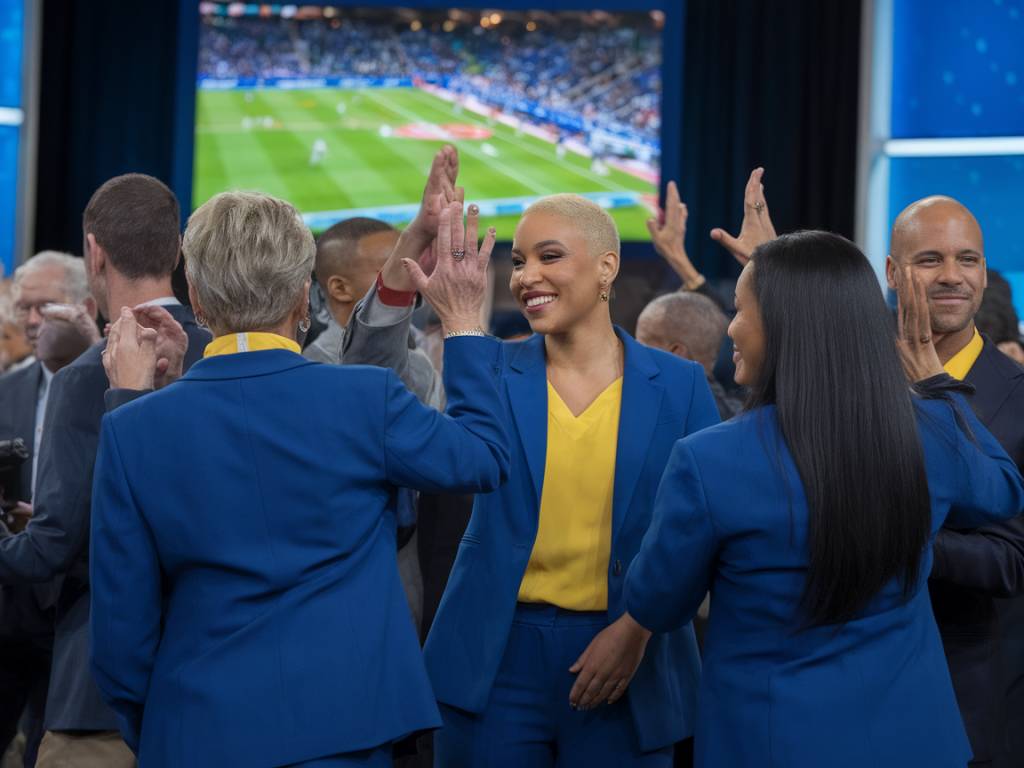In the ever-evolving landscape of sports broadcasting, the importance of diversity cannot be overstated. As global audiences continue to expand and shift, ensuring a wide range of perspectives and voices in sports media is essential for accurate, comprehensive, and engaging coverage. Diversity in sports broadcasting is not only a reflection of societal progress but also a driver of innovation and growth within the industry.
Enhancing Representation
Diversity in sports broadcasting helps to enhance representation across different demographics. When sports commentary teams include individuals from varied ethnic backgrounds, genders, and socio-economic statuses, the content delivered becomes more relatable to a broader audience. This diversified representation ensures that the stories, struggles, and achievements of athletes from underrepresented communities are highlighted, thereby promoting inclusivity.
Furthermore, inclusive representation fosters a sense of belonging among viewers who see themselves reflected in the sports media they consume. This connection can lead to increased viewer engagement and loyalty, as audiences feel a deeper personal connection to the broadcast and the sport itself.
Promoting Fairness and Equality
Diversity in sports broadcasting also promotes fairness and equality. Historically, sports media has been dominated by certain voices, often marginalizing others. By integrating diverse perspectives, broadcasters can challenge existing biases and stereotypes, creating a more equitable platform for all athletes.
Ensuring a diverse range of voices helps to address the imbalance of coverage that often overlooks women’s sports, minority sports, and disabled athletes. With a more inclusive team of broadcasters, these important yet underrepresented areas can receive the attention they rightfully deserve, helping to level the playing field and promote equality in the sports world.
Enriching the Viewer Experience
A diverse sports broadcasting team brings varied insights, experiences, and expertise to the table. This enriches the quality of analysis and commentary, making it more comprehensive and engaging for viewers. For example, former athletes, sports psychologists, and journalists from different cultural backgrounds can offer unique perspectives that enhance the storytelling and analysis of sporting events.
Moreover, linguistic diversity can also play a significant role in reaching a global audience. By offering multilingual commentary options, broadcasters can cater to non-English-speaking viewers, thereby expanding their reach and inclusivity. This not only broadens the audience base but also deepens the engagement with international sports fans.
Driving Innovation
Diversity fosters innovation and creativity within sports broadcasting. A team that includes varied perspectives is more likely to develop fresh ideas and approaches to content delivery. This innovative mindset can lead to the creation of new formats, features, and programming that resonate with a diverse audience.
For instance, integrating social media and digital platforms into traditional broadcasting can appeal to younger, tech-savvy viewers. Similarly, incorporating in-depth feature stories and documentaries that explore the socio-cultural aspects of sports can attract audiences interested in the broader implications of athletic events. The synergy of diverse ideas ultimately leads to a richer and more dynamic viewer experience.
Economic Benefits
The economic benefits of diversity in sports broadcasting are substantial. By appealing to a broader audience, broadcasters can tap into diverse markets, leading to increased viewership and advertising revenue. Brands and sponsors are increasingly recognizing the value of diversity in reaching various demographic segments, and inclusive sports broadcasting can attract these investment opportunities.
Moreover, diverse representation within broadcasting teams can enhance the credibility and reputation of sports media organizations. Viewers are more likely to trust and support outlets that demonstrate a commitment to inclusivity and social responsibility. This trust translates into long-term viewer loyalty and financial stability for broadcasters.
Community Impact
Diversity in sports broadcasting extends beyond the screen and has a profound impact on the broader community. Inclusive representation can inspire young people from underrepresented backgrounds to pursue careers in sports media, thereby promoting a cycle of diversity and inclusion. When young viewers see broadcasters who look like them and share similar experiences, it can have a powerful influence on their aspirations and career choices.
Additionally, diverse sports broadcasting can help to bridge cultural divides and foster mutual understanding. By highlighting the stories and achievements of athletes from different parts of the world, broadcasters can promote cultural exchange and unity through sports. This has the potential to create a more inclusive and harmonious society, where diversity is celebrated and valued.
Challenges and Solutions
While the importance of diversity in sports broadcasting is clear, achieving it is not without challenges. Traditional hiring practices, unconscious biases, and a lack of opportunities for underrepresented groups can hinder progress. However, there are several strategies that can be implemented to overcome these barriers.
- Diversity Training: Implementing mandatory diversity and inclusion training for all employees can help to address biases and promote a more inclusive work environment.
- Inclusive Hiring Practices: Adopting inclusive hiring practices and actively seeking diverse talent can help to build a more representative broadcasting team.
- Mentorship Programs: Establishing mentorship programs for young professionals from underrepresented backgrounds can provide them with the guidance and support needed to succeed in the industry.
- Partnerships with Diverse Organizations: Collaborating with organizations that promote diversity and inclusion in sports can provide broadcasters with access to a wider talent pool and resources.
- Regular Audits and Assessments: Conducting regular audits and assessments of diversity initiatives can help to ensure that progress is being made and identify areas for improvement.
By implementing these strategies and fostering a culture of inclusion, sports broadcasters can make significant strides toward achieving diversity and reaping its numerous benefits.
Ultimately, diversity in sports broadcasting is not just a moral imperative but a business strategy that drives engagement, innovation, and growth. As the industry continues to evolve, embracing diversity will be key to delivering content that resonates with a global audience and reflecting the true spirit of sports.






More Stories
Comment les podcasts sportifs redéfinissent le journalisme sportif moderne
How ai is revolutionizing sports highlights and analysis
Analyzing the growth of esports media coverage